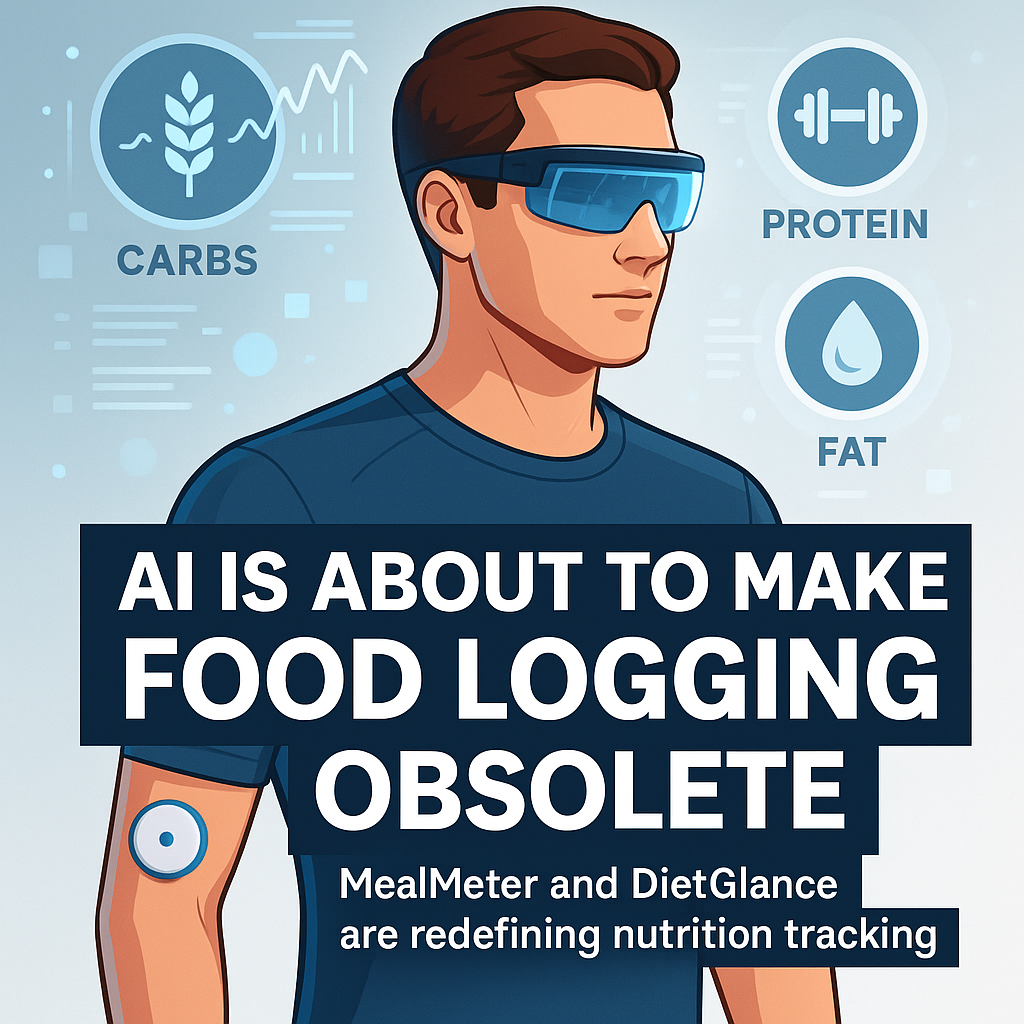
AI Is About to Make Food Logging Obsolete
Share
For decades, diet tracking has been tedious, time-consuming, and inaccurate. But two new technologies—MealMeter and DietGlance—are rewriting the rules. These early studies hint at a future where your meals log themselves, and your nutrition plan adapts in real time.
The Problem with Manual Tracking
Even the most disciplined athletes struggle to track accurately. Studies show most people underestimate calorie intake by 20–50%, and manual logging apps only make it worse. For coaches and parents trying to guide healthy habits, it’s guesswork wrapped in good intentions.
The New Wave: Smart Sensing + AI
MealMeter: Reading Macros from Your Body’s Signals
Researchers tested MealMeter, an AI system that uses physiological and motion data—like glucose, HRV, and daily activity—to estimate macronutrient intake automatically.
In a pilot study (n = 12), it predicted carbohydrate, protein, and fat intake with an error margin of about 13 g for carbs, without a single food entry.
Takeaway: For athletes, this could mean automatic macro tracking from wearable data, reducing friction and boosting compliance.
(Source: MealMeter AI Macronutrient Estimation Study, 2025)
DietGlance: Your Meals, Logged by Smart Glasses
Another study unveiled DietGlance, a pair of lightweight AI-powered glasses that detect eating events through discreet, privacy-filtered images.
In a user study (n = 33) and a four-week follow-up (n = 16), the system identified ingestion moments and generated personalized dietary analytics automatically.
Takeaway: No phone photos, no manual logging—just real-time diet monitoring that’s accurate and effortless.
(Source: DietGlance Wearable Nutrition Monitoring Study, 2025)
What This Means for Real Life
-
For athletes: Precision data without the burnout of tracking.
-
For coaches: True intake visibility to fine-tune macros and performance.
-
For parents: Practical feedback tools that can improve family nutrition without adding more to your plate.
The Bigger Picture
These early-stage studies are small but groundbreaking. When combined with continuous glucose monitors, HR trackers, and AI food databases, they could create a feedback loop that learns you:
how you eat, how your body responds, and how to optimize performance without the constant data entry grind.
The future of nutrition is passive, personalized, and powered by AI.
